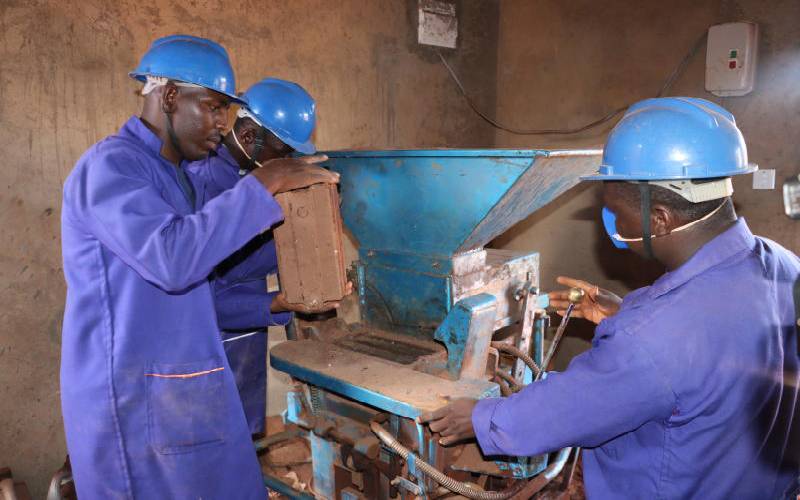×
The Standard e-Paper
Home To Bold Columnists

When in 2005 16 young men and women from Kanyuambora area of Embu County came together to help the less fortunate in the society, a brick project was never on their minds. But last year, as they sought ways to generate an income, they got into making interlocking bricks.
With the project, the group, calling itself Tri-K Group, did not only find a way of earning a living, but is also contributing to the government’s affordable housing agenda as well environmental conservation.